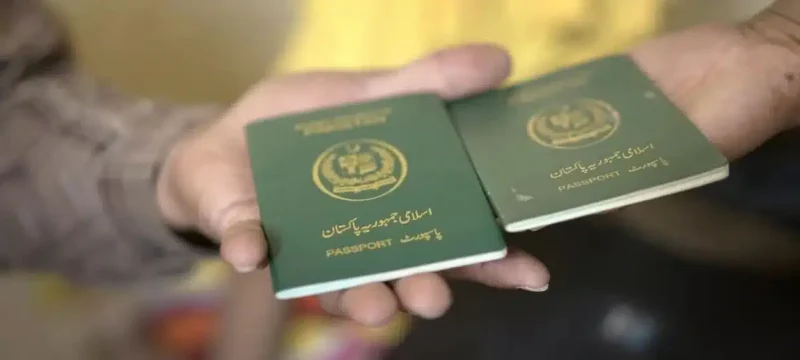The Pakistani passport retains its position as the fourth least favorable globally in the new year, showing no improvement over the past five years, as reported by The News on Thursday.
Based on data from the UK-based citizenship and residence advisory firm Henley and Partners, which evaluates 199 nations, the passport has maintained its ranking as the fourth worst, continuing its decline since July of the previous year. According to Henley Passport Index, Pakistan’s passport is positioned at 101st out of 104 with a score of 34 in the Global Mobility Report 2024. This means individuals holding an ordinary Pakistani passport have visa-free access to only 34 out of the 227 destinations covered in the index.
Also Read: DG Passports Announces Mandatory E-passports in Pakistan by 2027
The ranking considers the number of countries and territories passport holders can access without requiring a prior visa, using data from the International Air Transport Association (IATA). The top-ranking passports for this year belong to France, Germany, Italy, Japan, and Singapore, all sharing the first position with a score of 194.
Among South Asian countries, Pakistan lags behind, with Bangladesh at 97th (visa-free access to 42 destinations), Sri Lanka at 96th (score of 45), and Nepal at 98th (score of 40). India stands out in the region, securing the 80th spot with a score of 62.
The Pakistani passport grants visa-free access to a limited number of destinations, including Barbados, Burundi, Cambodia, Cape Verde Islands, Comoro Islands, Cook Islands, Djibouti, Dominica, Guinea-Bissau, Haiti, Kenya, Madagascar, Maldives, Micronesia, Montserrat, Mozambique, Nepal, Niue, Palau Islands, Qatar, Rwanda, Samoa, Senegal, Seychelles, Sierra Leone, Somalia, Sri Lanka, St Vincent and the Grenadines, Timor-Leste, Togo, Trinidad and Tobago, Tuvalu, and Vanuatu.
In a statement from Henley and Partners, Dr. Christian H Kaelin, the Chairperson, noted that despite the historical trend towards increased travel freedom, the global mobility gap between the top and bottom of the index has widened. The average number of visa-free destinations has almost doubled from 58 in 2006 to 111 in 2024.
Additionally, experts highlight the growing role of technology in travel-related tasks, with IATA Senior Vice President Frederic Leger stating that the optimization and enhancement of airport processes, especially in automating document verification, will be crucial given the expected doubling of passenger traffic by 2040.









